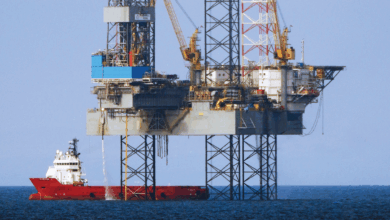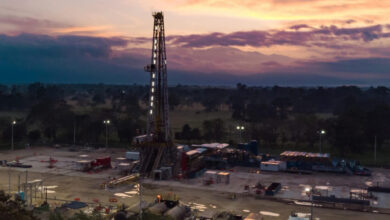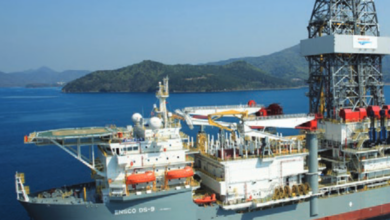Miller: BRIC countries slowing down but remain important E&P markets, drivers

By Joanne Liou, associate editor
Political instability and the lack of middle class development in BRIC countries – Brazil, Russia, India and China – are challenging those nations’ economic growth. Further, their GDP growth rates have been lower than previously expected, M. A. “Pete” Miller said. “If you don’t have demand, if you don’t have economies that are growing, ultimately that’s going to impact the price of oil and gas,” Mr Miller, chairman & CEO, National Oilwell Varco (NOV), said at the 2013 IADC Annual General Meeting last week in San Antonio, Texas. Nevertheless, Mr Miller said he still believes in the importance of BRIC countries and sees significant opportunities there for the drilling industry.
In Brazil and Russia, GDP growth has slowed down while their foreign exchange rates have gone up, Mr Miller said. Further, continuing civil unrest could spell trouble for the countries. On the positive side, both countries have strong prospects for significant hydrocarbon supplies, which should continue to present opportunities for this industry. “That’s where we come into the equation – the folks that have the drilling rigs, downhole tools, coiled-tubing units, that are necessary to go into these countries.”
GDP growth also appears to be waning in India, where political pressures are building. However, unlike Brazil and Russia, hydrocarbon supply prospects don’t appear to be as strong, Mr Miller said. That could change, however, with deepwater drilling picking up, particularly off the west coast. ONGC and Transocean, for example, set a world record earlier this year for the deepest water depth with the Dhirubhai Deepwater KG1 ultra-deepwater drillship. The rig spudded well #1-D-1 in 10,411 ft (3,174 meters) of water.
The fourth BRIC country, China, is dealing with a falling exchange rate that for years had stayed around 8 Renminbi for every US dollar. “Today, you’ve got 6 Renminbi to a dollar. Now, all of a sudden, it’s much more expensive for China to export. You’re looking at a place that is almost like Japan was when you go back to the late ‘80s.” This weaker exchange rate is likely to impact China’s domination of global manufacturing, he said, putting pressures on its economy and society, and ultimately potentially leading to political instability.
Growing supply
The industry continues to look strong on the supply side, Mr Miller said, mostly due to shales and ultra-deepwater. “These are really going to help dictate what goes on, and that impacts everyone in the IADC. We are going to continue to push the supply side, while at the same time, hope that the demand side will pick up,” he commented.
While such demand growth might not come from BRIC countries as much as previously expected, Mr Miller said he sees the potential for a multitude of Asian countries to pick up the slack. In particular, Malaysia, Thailand and Vietnam should see continued strong economic growth, even if China slows down. By 2020, non-OECD economies are projected to consume 47% more energy than OECD economies, and that percentage will rise to 88% by 2040, according to the US Energy Information Administration (EIA). In Asia alone, the EIA projects energy use in non-OECD nations to rise by 112% between 2010 and 2040. “There are areas (in Asia) where we’ll see double-digit GDP growth, and you can’t have double-digit GDP growth unless you have solid demand for oil and gas products.”
Although the industry outlook remains mostly promising, Mr Miller reminded industry leaders of the cyclical nature of the business and the importance of maintaining financial flexibility. “Maintain liquidity because you never know when you’re going to need that liquidity. Cash is king,” Mr Miller said. He also encouraged industry to stay on the cutting edge with new technologies because “you can’t do either – shales or ultra-deepwater – without enhancing technology… If you have the best technology, your rigs are going to keep running.”




